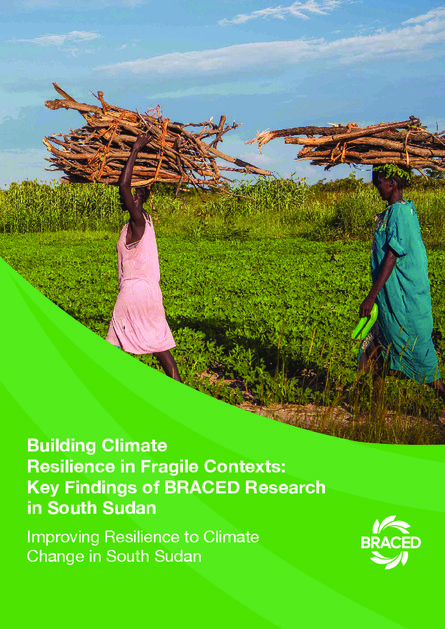
This paper is a synthesis of the key findings from research undertaken with the BRACED portfolio. The paper makes a number of recommendations for future work and research. The aim of all of the research undertaken was to influence and strengthen the delivery of BRACED programming in South Sudan and national and subnational climate related programming in the future.
The research uncovered a number of findings. Firstly, that climate change and conflict are poorly correlated in South Sudan. Secondly, that there is an extensive knowledge of drought and flood resistant sorghum at the local level. Thirdly, many communities believe that flood and drought is God-sent and they have low levels of power to tackle it. Fourthly, that women are deeply affected by a changing climate given their dependence on natural resources. Finally, land tenure and the management of commons areas may offer opportunities for peace dividends and conflict resolution.
The above findings offer an opportunity for various stakeholders in South Sudan to work together to bring about meaningful change. These changes will need to occur at micro, meso and macro levels in order to be transformative in nature.